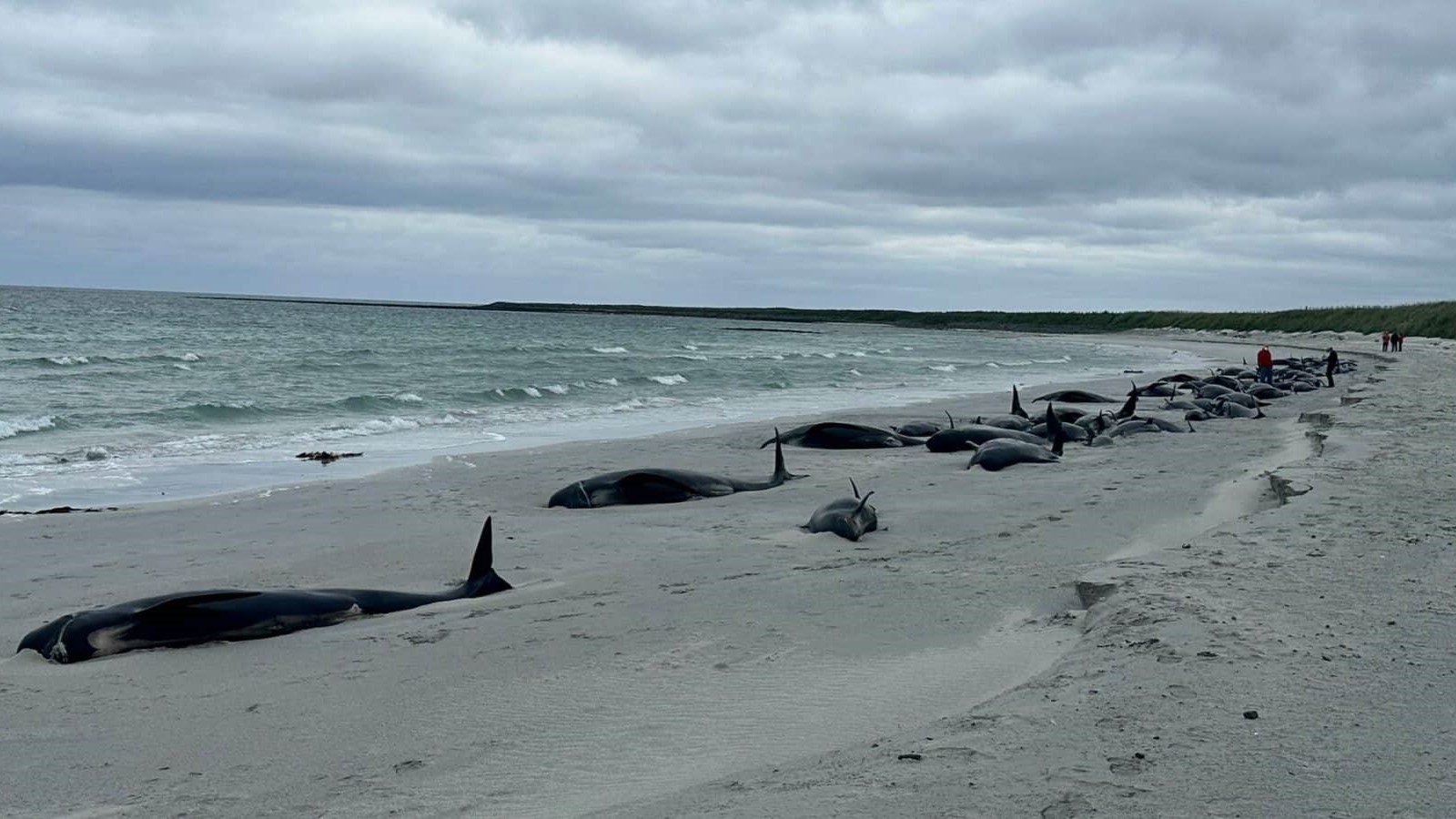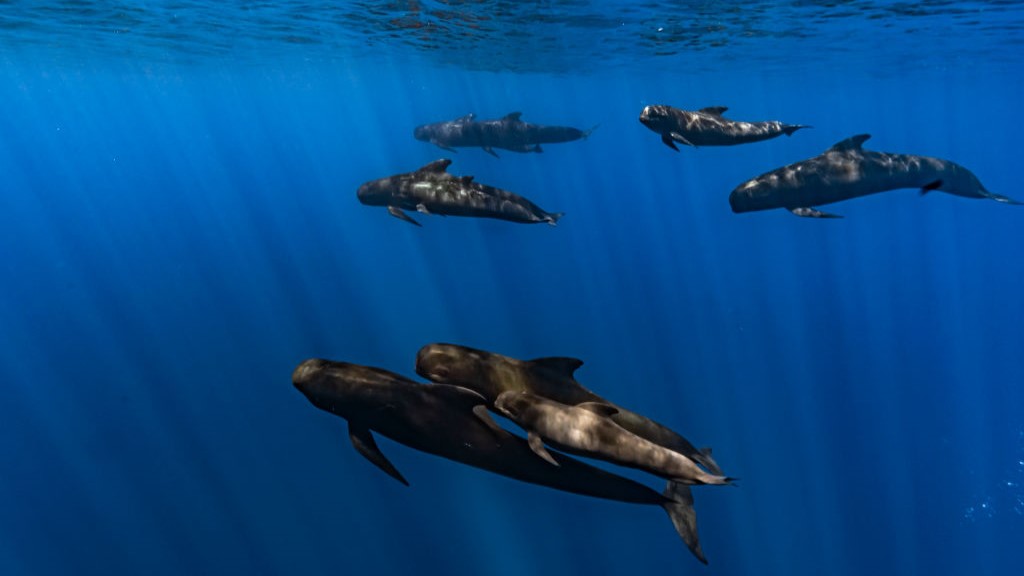Entire pod of 89 pilot whales dies on Scottish beach in freak mass stranding
Dozens of long-finned pilot whales have beached and died on Sanday in the Orkney Islands, Scotland, in the biggest mass stranding the country has seen since 1995.

More than 80 pilot whales have died after mysteriously becoming stranded on a beach in Scotland. The mass stranding of the entire pod is thought to be the biggest the country has seen in nearly 30 years.
Locals reported the stranding to rescuers around 10:45 a.m. local time (5:45 a.m. ET) on Thursday (July 11), according to a statement from the British Divers Marine Life Rescue (BDMLR). The scene unfolded on a beach on Sanday, in the northern Scottish archipelago of Orkney. The stranded animals were long-finned pilot whales (Globicephala melas), which are actually large dolphins named after their unusually long pectoral fins.
By the time rescuers arrived later that day, 77 pilot whales had already been lying dead for several hours, their carcasses strewn high up across the beach, according to the statement. Twelve pilot whales were still alive, and the rescuers immediately performed health assessments and first aid.
But as the day drew on, the pilot whales' health took a dramatic plunge. Rescuers hoped the survivors would be able to swim off at high tide, but their efforts to refloat the animals were fruitless.
"The substrate they're on is also incredibly soft, meaning they have sunk even deeper into the sand when the tide washed over them, so they unfortunately weren't able to refloat themselves," BDMLR representatives wrote in the statement.
Related: Could an impending rise in solar storms cause more whales to strand?
The pilot whales may also have inhaled water with the incoming tide, worsening their condition, according to the statement.
Sign up for the Live Science daily newsletter now
Get the world’s most fascinating discoveries delivered straight to your inbox.
As evening approached, rescuers and medics decided the animals couldn't be saved. "Sadly, the remaining 12 pilot whales have been euthanized due to their condition deteriorating from the many hours they have spent stranded on the beach," representatives wrote in an update just after 18:00 p.m. local time (13:00 p.m. ET).

It's unclear why the pilot whales stranded themselves, but it's possible that one pilot whale ran into trouble and consequently led the rest of the pod too close to the shore, the BBC reported. The pod was composed of large males up to 22 feet (7 meters) long, as well as smaller females, calves and juveniles, according to the BBC.
Post mortem examinations may soon reveal what led the pilot whales astray. Experts with the Scottish Marine Animal Stranding Scheme (SMASS) will try to recover as many bodies from the beach as possible to conduct a thorough examination of the stranding, BDMLR representatives said in the update.
Large strandings like this one are becoming increasingly common in Scotland, Andrew Brownlow, a veterinary pathologist who leads the SMASS strandings team, told the BBC. "It used to be quite unusual to have a mass stranding event," he said. "But over the last 10 years or so we have seen an increase both in the number of mass stranding events around Scotland and also the size of the mass and the number of animals that it involves."
The cause is unclear, he said, but it could be due to there being more animals at sea, or because those animals are exposed to more hazards.

Sascha is a U.K.-based staff writer at Live Science. She holds a bachelor’s degree in biology from the University of Southampton in England and a master’s degree in science communication from Imperial College London. Her work has appeared in The Guardian and the health website Zoe. Besides writing, she enjoys playing tennis, bread-making and browsing second-hand shops for hidden gems.









